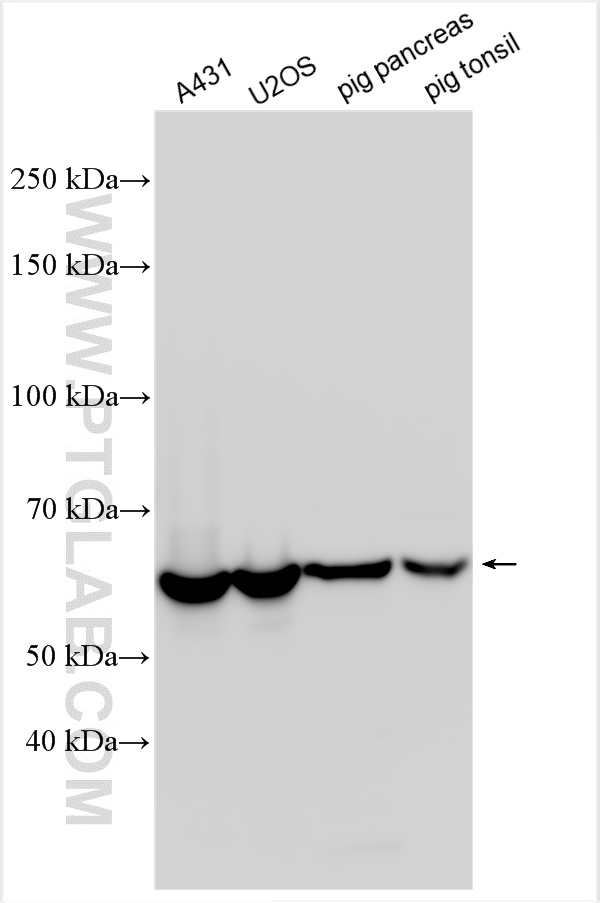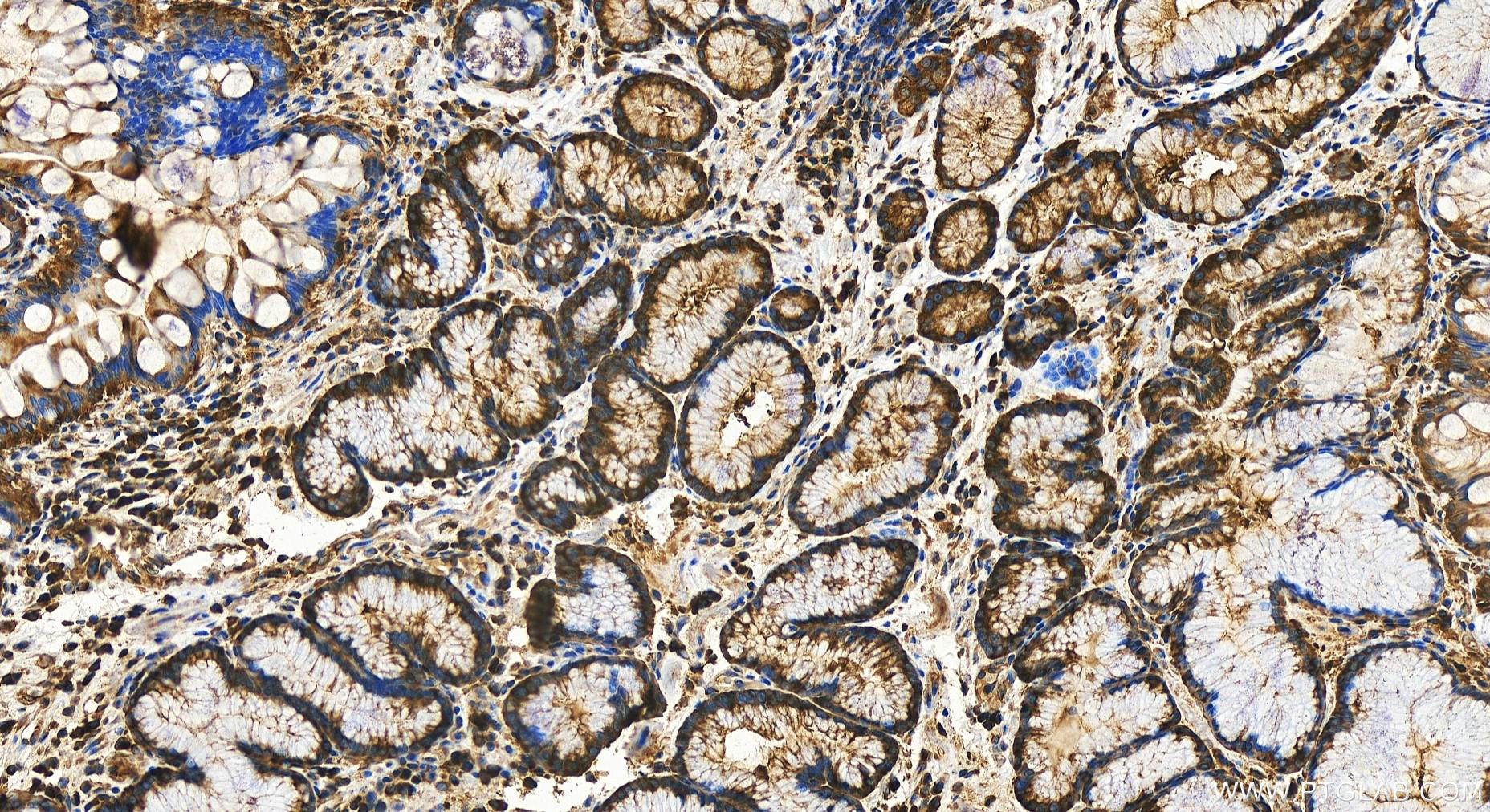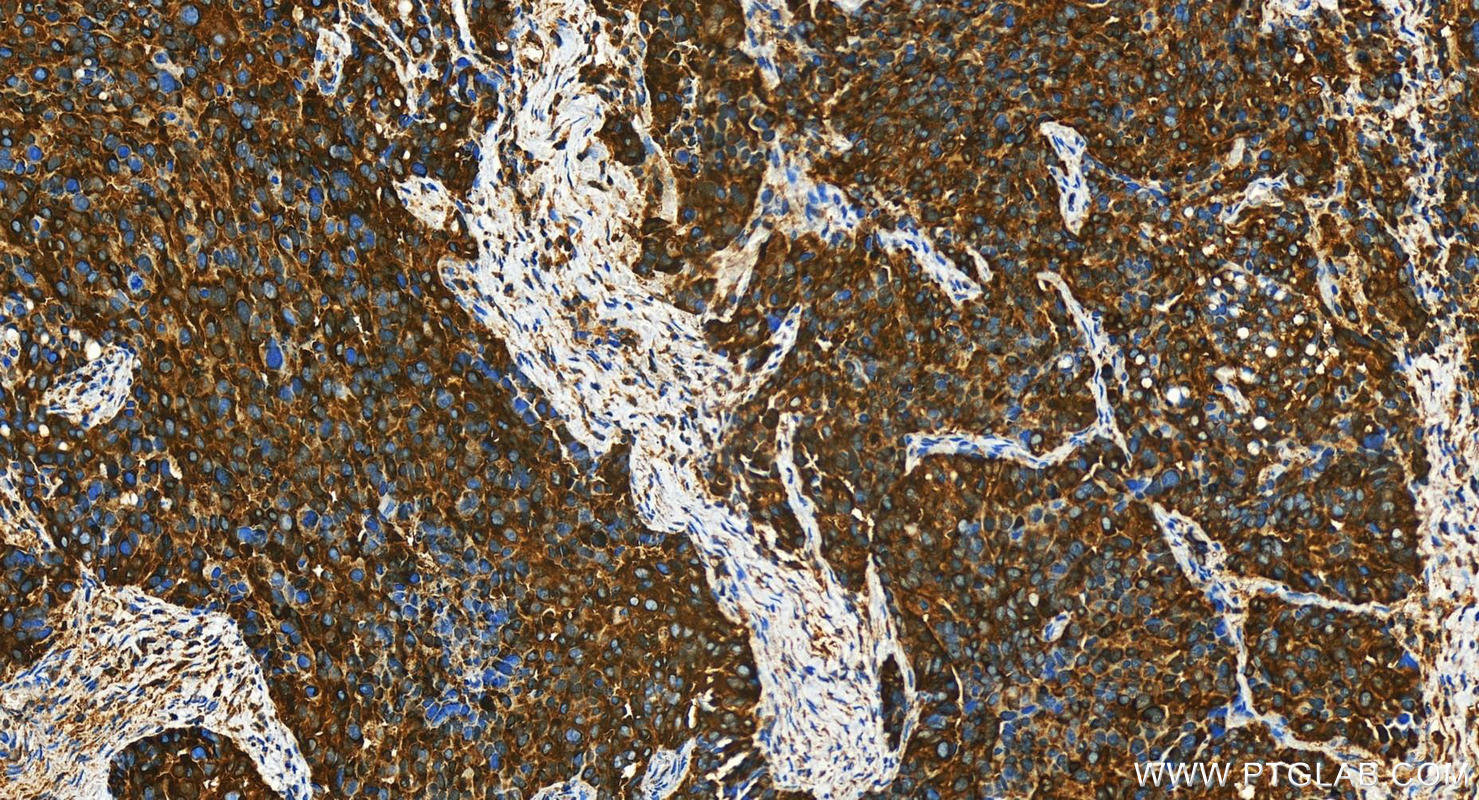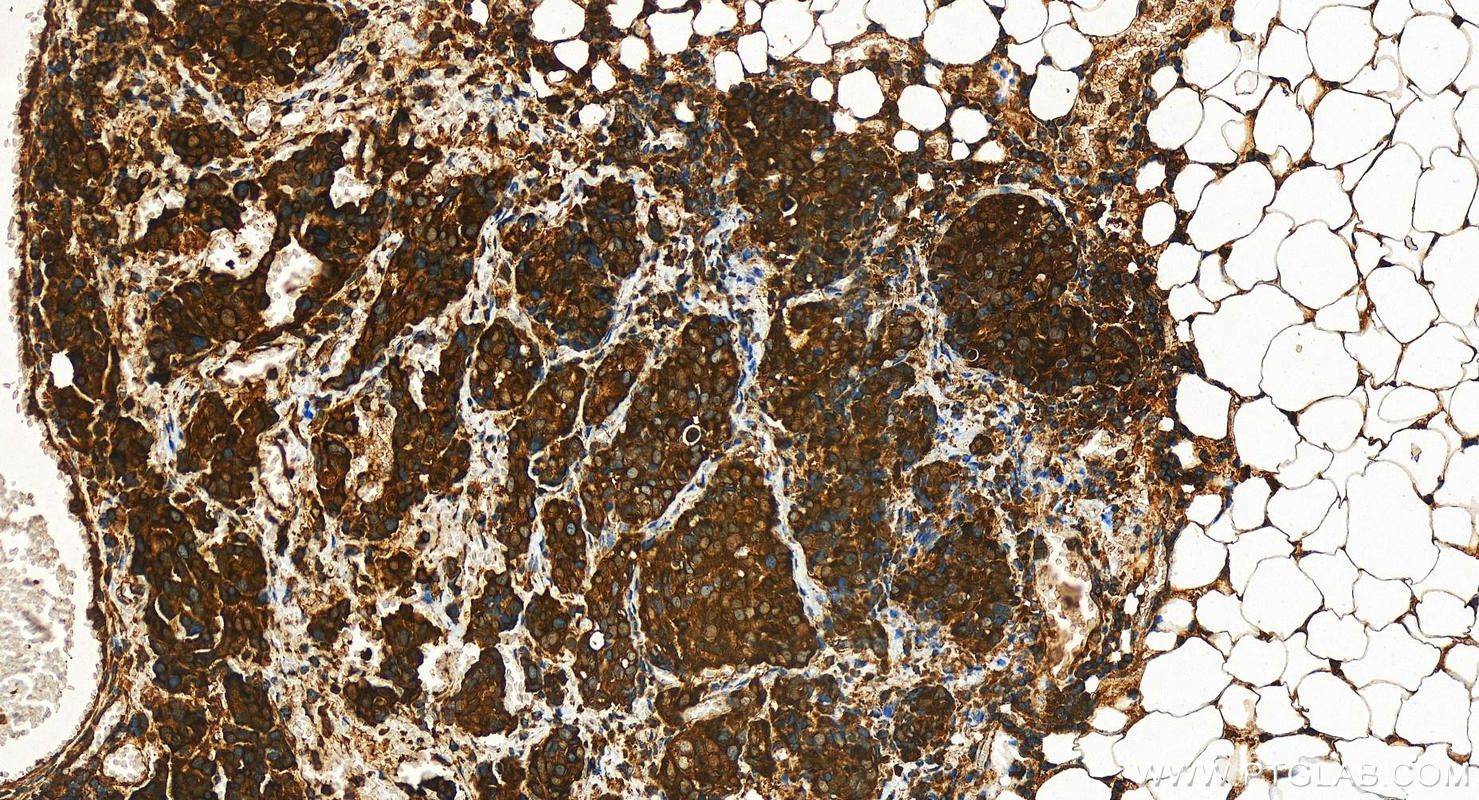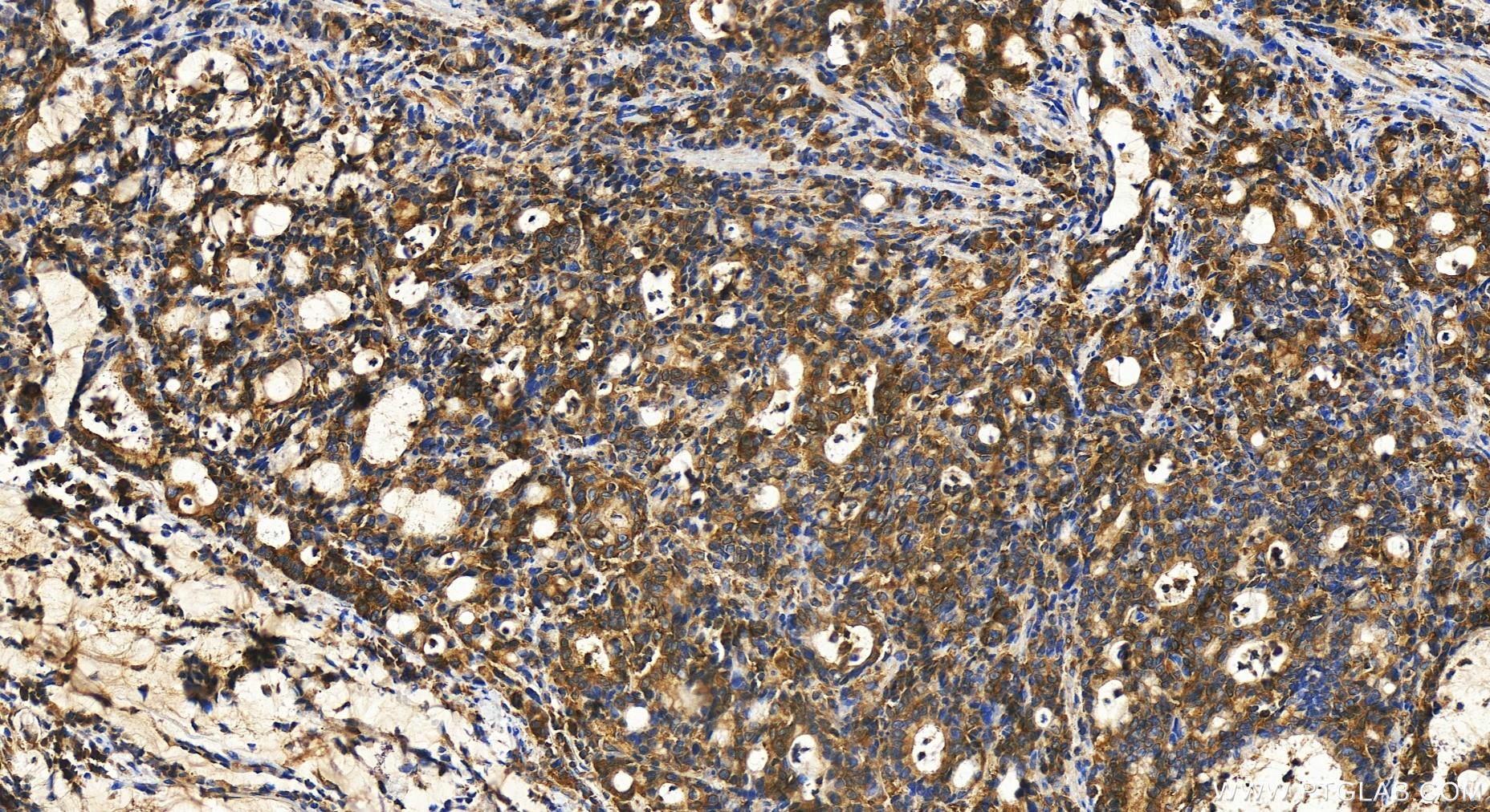验证数据展示
经过测试的应用
| Positive WB detected in | A431 cells, U2OS cells, pig pancreas tissue, pig tonsil tissue |
| Positive IHC detected in | human stomach cancer tissue, human ovary cancer tissue Note: suggested antigen retrieval with TE buffer pH 9.0; (*) Alternatively, antigen retrieval may be performed with citrate buffer pH 6.0 |
推荐稀释比
| 应用 | 推荐稀释比 |
|---|---|
| Western Blot (WB) | WB : 1:2000-1:12000 |
| Immunohistochemistry (IHC) | IHC : 1:200-1:800 |
| It is recommended that this reagent should be titrated in each testing system to obtain optimal results. | |
| Sample-dependent, Check data in validation data gallery. | |
产品信息
31228-1-AP targets YARS in WB, IHC, ELISA applications and shows reactivity with human, pig samples.
| 经测试应用 | WB, IHC, ELISA Application Description |
| 经测试反应性 | human, pig |
| 免疫原 | YARS fusion protein Ag35148 种属同源性预测 |
| 宿主/亚型 | Rabbit / IgG |
| 抗体类别 | Polyclonal |
| 产品类型 | Antibody |
| 全称 | tyrosyl-tRNA synthetase |
| 别名 | YARS1, YTS, YRS, TYRRS, CMTDIC |
| 计算分子量 | 59 kDa |
| 观测分子量 | 60 kDa |
| GenBank蛋白编号 | BC016689 |
| 基因名称 | YARS |
| Gene ID (NCBI) | 8565 |
| RRID | AB_3669909 |
| 偶联类型 | Unconjugated |
| 形式 | Liquid |
| 纯化方式 | Antigen affinity Purification |
| UNIPROT ID | P54577 |
| 储存缓冲液 | PBS with 0.02% sodium azide and 50% glycerol , pH 7.3 |
| 储存条件 | Store at -20°C. Stable for one year after shipment. Aliquoting is unnecessary for -20oC storage. |
背景介绍
Tyrosyl-tRNA synthetase (YARS) is responsible for tyrosyl-tRNA aminoacylation. The functional enzyme exists as a homodimer, has potent leukocyte and monocyte chemotaxis activity, and stimulates production of myeloperoxidase, tumor necrosis factor-α, and tissue factor. A shift in the monomer:dimer equilibrium could result in dysregulation of the cytokines function. (PMID: 33490854)
实验方案
| Product Specific Protocols | |
|---|---|
| WB protocol for YARS antibody 31228-1-AP | Download protocol |
| IHC protocol for YARS antibody 31228-1-AP | Download protocol |
| Standard Protocols | |
|---|---|
| Click here to view our Standard Protocols |
